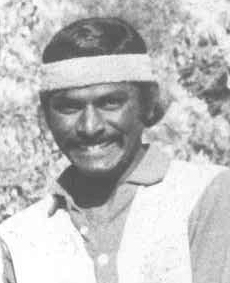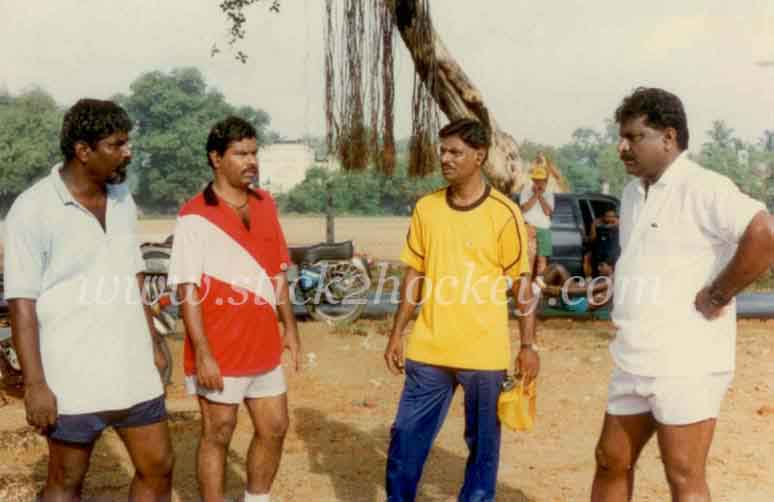s2h Team
Twenty years on, Vasudevan Baskaran does not allow the trauma of missing the Olympic semifinal by a whisker to rankle him. As head coach, he watched from the dugout on this day at the 2000 Sydney Olympics. The captain of the gold medal winning team at Moscow 1980 was on the threshold of guiding India to their first Olympic semi-final spot after that triumph which brought the country its eighth Olympic title.
As little as 106 seconds stood between India and a place in the medal round. Their opponents Poland though, nurturing ambitions of their own – that of making it to the Champions Trophy qualification zone – were not ready to give up the ghost.
India saw visions of a semi-final spot after Dilip Tirkey shot them ahead but Poland exploited a lapse in defence when captain and left-half Ramandeep Singh slipped on a rain-affected turf and failed to cut out a long cross-field pass.
Striker Tomacz Cichy latched on to the ball and beat goalkeeper Jude Menezes to doom India to fight for minor placings yet again.

Vasudevan Baskaran in the 70s
The 1-1 draw propelled South Korea who pipped India to take on Pakistan in the semifinals which they won 1-0. India and Korea had similar Goals Aggregate, Goal Difference (GD) and points, all factors for deciding rank in the pool. India could have entered the semis on better Goal Aggregate if the Poland match would have been a 2-2 draw. However, what went in favour of the Koreans was the fact that they beat India in the league! The Koreans, however, settled for silver after losing to the Dutch via the tie-breaker in the final.
India, smarting from failure to make the semifinals, slipped to seventh place after losing to Britain 1-2 and a 3-1 win over Argentina was hardly consolation.
Looking back, Baskaran refuses to be drawn into who was at fault.
“We were not destined to reach the semifinals and South Korea were,” he says fatalistically.
“Of course, our inability to beat Poland on the day was unpardonable, especially since we were good enough to beat them even with five players short,” Baskaran says with a tinge of wry humour.
The Arjuna awardee, however, prefers to look forward rather than brood over that defeat which sustained a medal drought at the Olympics or World Cup that is more than 40 years old.

A rare photo of V Baskaran (r) with his three other brothers (l-r) Jeyasekaran, Vasikaran and Prabhakaran.
Baskaran who manned the left-half position – the toughest on a hockey pitch — comes from a family of five hockey-playing brothers. He is the third of the illustrious quintet, having achieved the most by going on to captain India to gold at the Olympics. However, siblings Prabhakaran (centre-forward), Rajasekaran (centre-half), Jayasekaran (defender) and Vasikaran (half-back) were also accomplished players with all but the last named representing India.
As director of TruCoach CSS-Baskaran Centre for Hockey in Chennai, the 70-year-old will attempt to realize his dream of nurturing the grassroots.
“I always believed Indian hockey could regain its glory if the grassroots were given scientific training,” he says.
An avowed critic on how the game has been governed in India and globally, Baskaran didn’t take kindly to the change from natural grass to artificial turf – a much touted reason for India’s downward spiral in the game.
Senior players failed at the crucial juncture at Sydney
“The change was done way back in 1975 without gaining the consent of the global hockey community,” Baskaran reveals. “It was forced upon countries,” he adds.
“When we went to the 1976 Montreal Olympics, Ajit Pal Singh, Ashok Kumar, Govinda and myself, to name a few, were made to look like novices.
Baskaran is also bitter about rule frequent and sweeping rule changes that have changed the face of the game.
“Rule changes must be made once in four years. Then again, how many members of the FIH rules committee have been former players at a high level?”, he retorts.
Baskaran asks hockey to look at football. “There has been little or no change to the game,” he says. “The rules are easy to understand for fans and that’s why football is the cynosure of the world.”
The view that hockey has to cope with a little hard ball and a “weapon” called the stick — factors football has been spared of – when it comes to framing the rules to increase safety doesn’t draw much sympathy from Baskaran. He affirms that danger is part of any sport and is something one should accept.
And Baskaran certainly isn’t a fan of some major changes in hockey’s format and rules.
“Why was the bully-off to start a match abolished? India had a clear advantage in a bully-off with Dhyan Chand winning such duels nine times out of 10,” he says. “Why four quarters to a match? If increasing commercial breaks was a motive, has there been a significant growth in this area?”
Baskaran also scoffs at off-side being removed and the ensuing situation of forwards camping near the opponents goal — farcical from his point of view.
And the last straw appears to be an outfield player replacing the goalkeeper, a rule in existence for a decade to enable teams have numbers in attack as they chase a match in the closing stages.
“A goal without a goalkeeper, that’s ridiculous!” he booms.
Baskaran, however is fine with the self-pass as it helps speed up the game, and supports Hockey Fives, even as many other icons have frowned upon this version of the sport.
“I have been been involved in the organization of several five-a-side and seven-a-side tournaments and I think these reduced versions will help promote the game,” he opines.
And promotion is what the sport badly needs in India. “We need to revive schools, college and university hockey. We also need to attract the very young to the sport with upgrading our administration and organization,” he recommends.
Baskaran is a link to a vestige of India’s fast-fading memory of the glorious past. Despite his resentment of all that has plagued the game India and abroad, he works with a zeal at the logical starting point – the grassroots.
And it’s here that India’s hockey future will be shaped even though hopes of a podium finish at the postponed 2020 Tokyo Olympics next year have soared in recent times.
Photos: K. Arumugam
